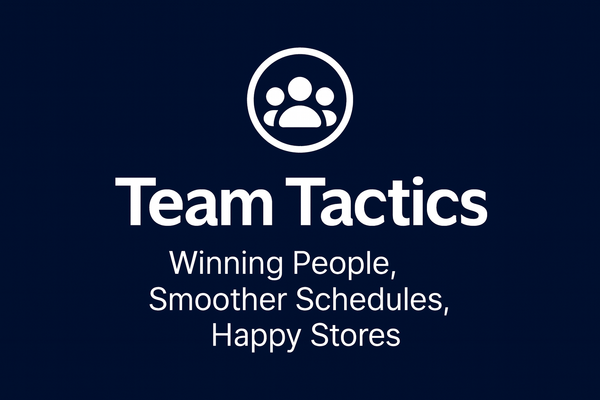Mastering Flexibility in the Fast-Paced Convenience Store Environment
Discover how to thrive in the dynamic world of convenience stores by embracing flexibility. This guide offers practical strategies for all staff levels to adapt, excel, and create a responsive work environment that meets ever-changing customer needs.

Picture this: It's a bustling Friday evening at your convenience store. The line at the register stretches to the back, a delivery truck arrives unexpectedly, and a customer spills their coffee near the entrance. How do you handle these simultaneous challenges without missing a beat? The answer lies in mastering flexibility – a skill that can transform chaos into smooth operations in the fast-paced convenience store environment.
Flexibility in a convenience store setting goes beyond simply being able to multitask. It's about cultivating a mindset that allows you to adapt quickly to changing circumstances, anticipate needs before they arise, and maintain a positive attitude even under pressure. This skill is invaluable for everyone from sales associates to independent owners.
For sales associates, flexibility means being ready to switch gears at a moment's notice. You might be restocking shelves one minute and operating the register the next. The key is to approach each task with equal enthusiasm and efficiency. When faced with unexpected situations, take a deep breath and assess the priority of each task. Can you quickly clean up the spilled coffee while directing the next customer in line to a free register? Your ability to handle multiple responsibilities simultaneously will not only impress your managers but also enhance the customer experience.
Assistant managers, your role requires an even greater degree of flexibility. You're the bridge between frontline staff and upper management, often needing to balance conflicting priorities. Develop a keen sense of what needs immediate attention versus what can wait. When unexpected deliveries arrive, quickly reorganize staff duties to ensure both customer service and inventory management are addressed. Your flexibility sets an example for the entire team and keeps operations running smoothly during challenging times.
Store managers, your flexibility is tested in broader ways. You must adapt to changing market conditions, evolving customer preferences, and shifts in staff dynamics. Stay attuned to industry trends and be willing to adjust your strategies accordingly. If you notice a surge in demand for healthier snack options, be prepared to modify your inventory quickly. Your ability to pivot and make informed decisions on the fly can significantly impact your store's success.
Independent owners, flexibility for you means being open to new ideas and approaches. The convenience store landscape is constantly changing, and what worked yesterday may not work tomorrow. Be willing to experiment with new products, technologies, or service models. Your adaptability can give your store a competitive edge and help you weather economic fluctuations more effectively.
To cultivate flexibility across all levels of your convenience store operation, consider implementing these strategies:
Cross-train employees so they can handle multiple roles.
Encourage open communication to quickly address and solve problems.
Regularly review and update procedures to ensure they remain relevant.
Foster a culture where adaptability is valued and rewarded.
Provide resources and support for staff to develop their problem-solving skills.
Remember, flexibility isn't about having all the answers – it's about being willing to find them. When faced with a challenging situation, approach it with curiosity rather than frustration. Ask yourself, "How can we turn this into an opportunity to improve our service or operations?"
Flexibility also means being responsive to customer needs. Pay attention to feedback and be willing to adjust your offerings or processes accordingly. A customer complaint about long wait times could lead to innovations in your checkout process that benefit everyone.
For managers and owners, fostering flexibility in your team requires leading by example. Show your staff that you're willing to roll up your sleeves and help out wherever needed. This not only demonstrates the importance of adaptability but also builds a sense of camaraderie and shared purpose.
Ultimately, flexibility in a convenience store setting is about creating a responsive, efficient, and customer-focused environment. It's about turning potential problems into opportunities for growth and improvement. By embracing flexibility at all levels of your organization, you can create a dynamic workplace that's better equipped to handle the unpredictable nature of retail.
As you reflect on your own role in the convenience store environment, ask yourself: How can I cultivate greater flexibility in my approach to daily challenges? What steps can I take to become more adaptable and responsive to the needs of my customers and colleagues?
By continually asking these questions and striving to enhance your flexibility, you'll not only improve your own performance but also contribute to a more resilient and successful convenience store operation. Are you ready to embrace the power of flexibility and transform how you approach your work in the fast-paced world of convenience stores?





